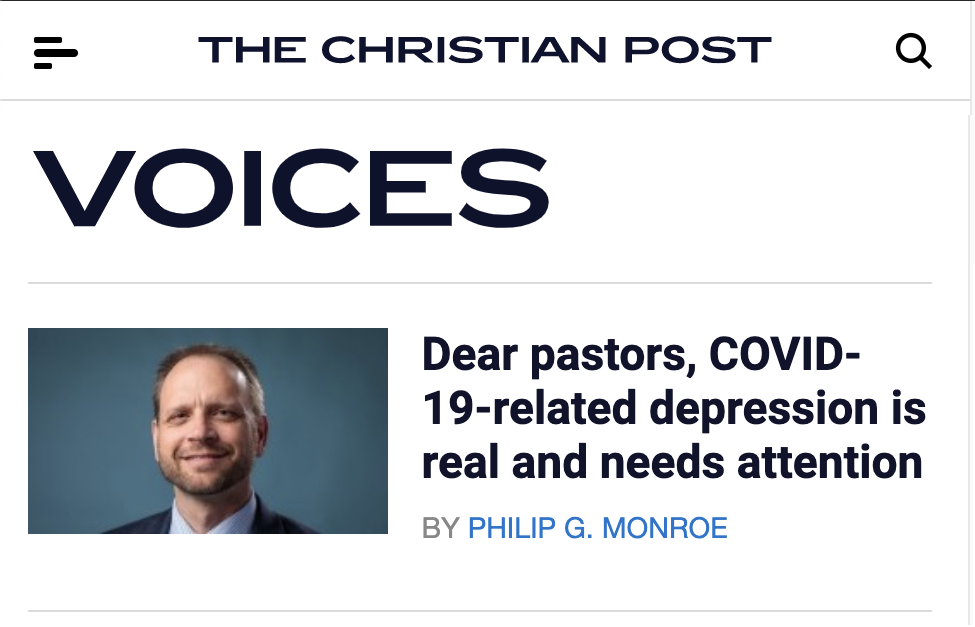This Christian Post op-ed article by Dr. Philip G. Monroe (Director of Trauma Healing Training at American Bible Society) has valuable perspectives and practical ways for pastors and church leaders to help those who searching for spiritual and emotional support.
Dear pastors, COVID-19-related depression is real and needs attention
Read the full articleEveryone is aware of the physical health crisis caused by COVID-19. However, as a country, we are facing a new danger. It is coming in the form of mental health distress – increased anxiety, depression, post-traumatic stress, and suicidal impulses. Those who are vulnerable, isolated, or ill-equipped to address mental health effects of the pandemic have turned to alcohol, marijuana, porn, and over-eating in significant and quantifiable numbers. Our country is dealing with rising cases of domestic, sexual and child abuse. These problems often lead to a cascade of other medical and social problems, and our medical and public health systems are not well prepared to respond.
I’m encouraged by the agility of the church we’ve witnessed over the past two months. While our governments have done what they can to address the many needs of Americans, local churches have often been the ones to meet financial, physical and emotional needs in very efficient ways. Church leaders are deeply plugged into the specific needs of their communities, and, most importantly, they have a heart for providing spiritual support and care.
However, many pastors find it difficult to speak about mental health challenges from the pulpit. In a 2018 survey, nearly half said they rarely, or never, speak on the subject to their churches in sermons or large group messages.
The good news is that church leaders have the trust of their congregants. Many congregants will ask you or your staff for emotional help before they consider going to a professional.

